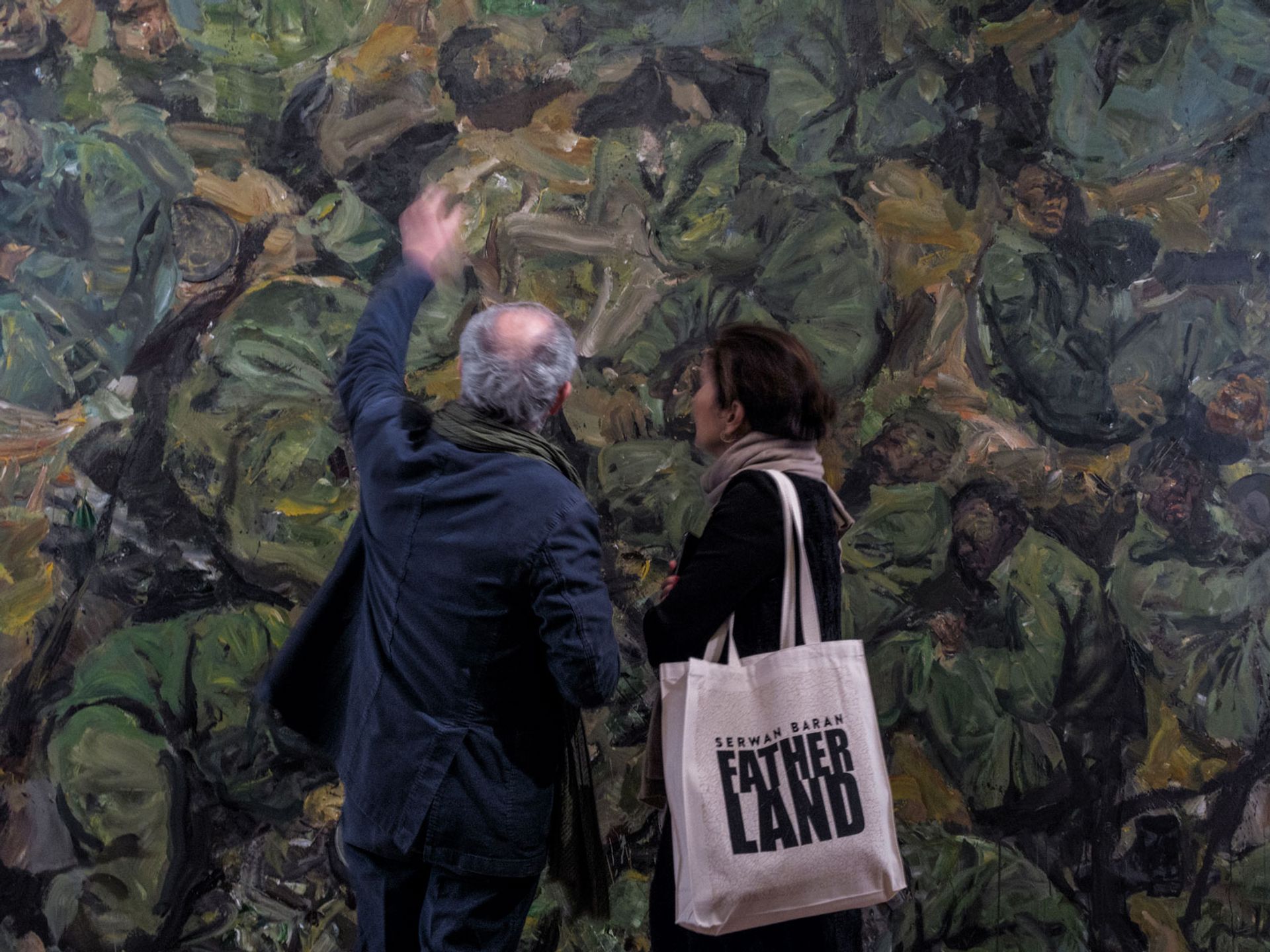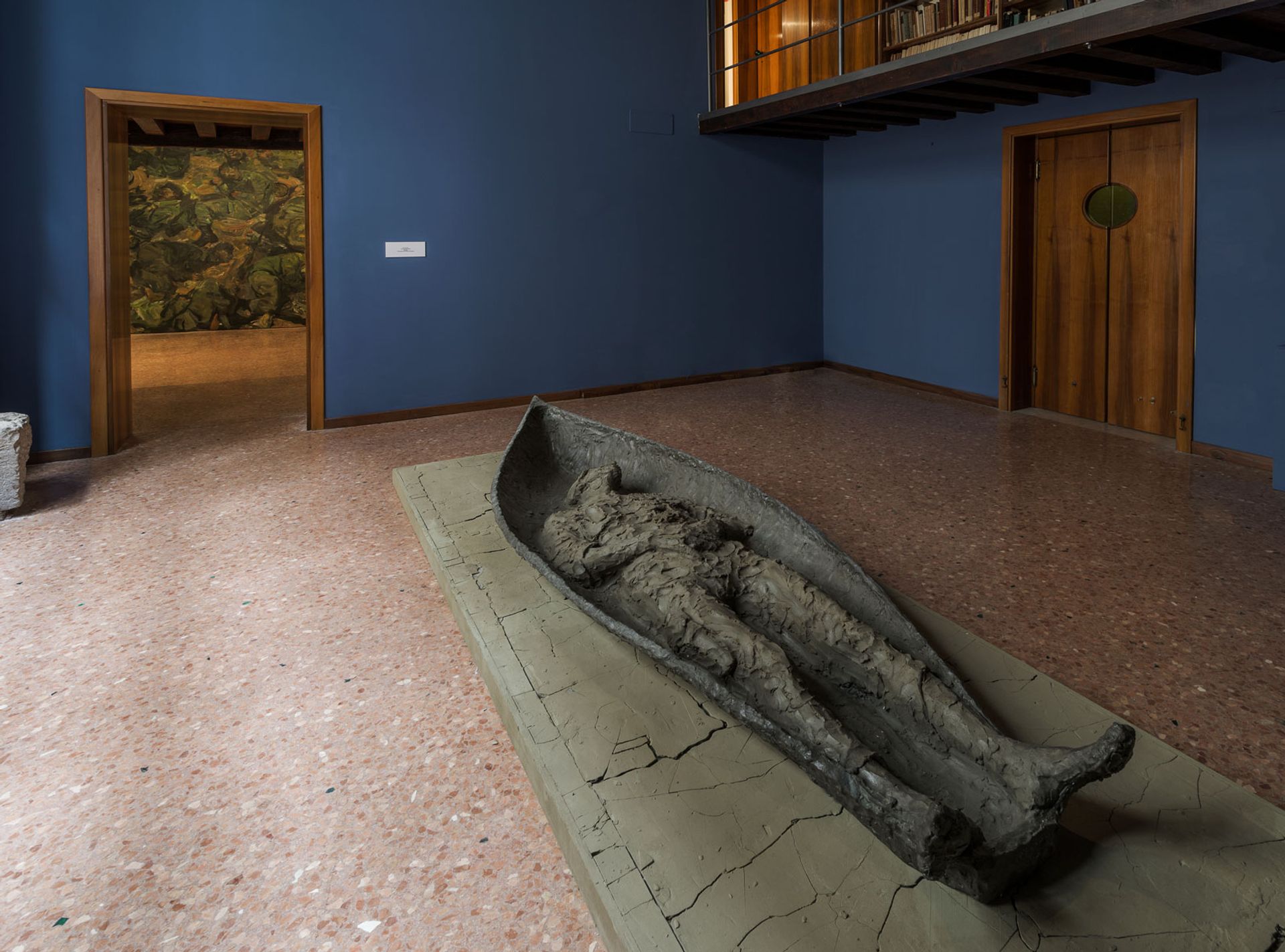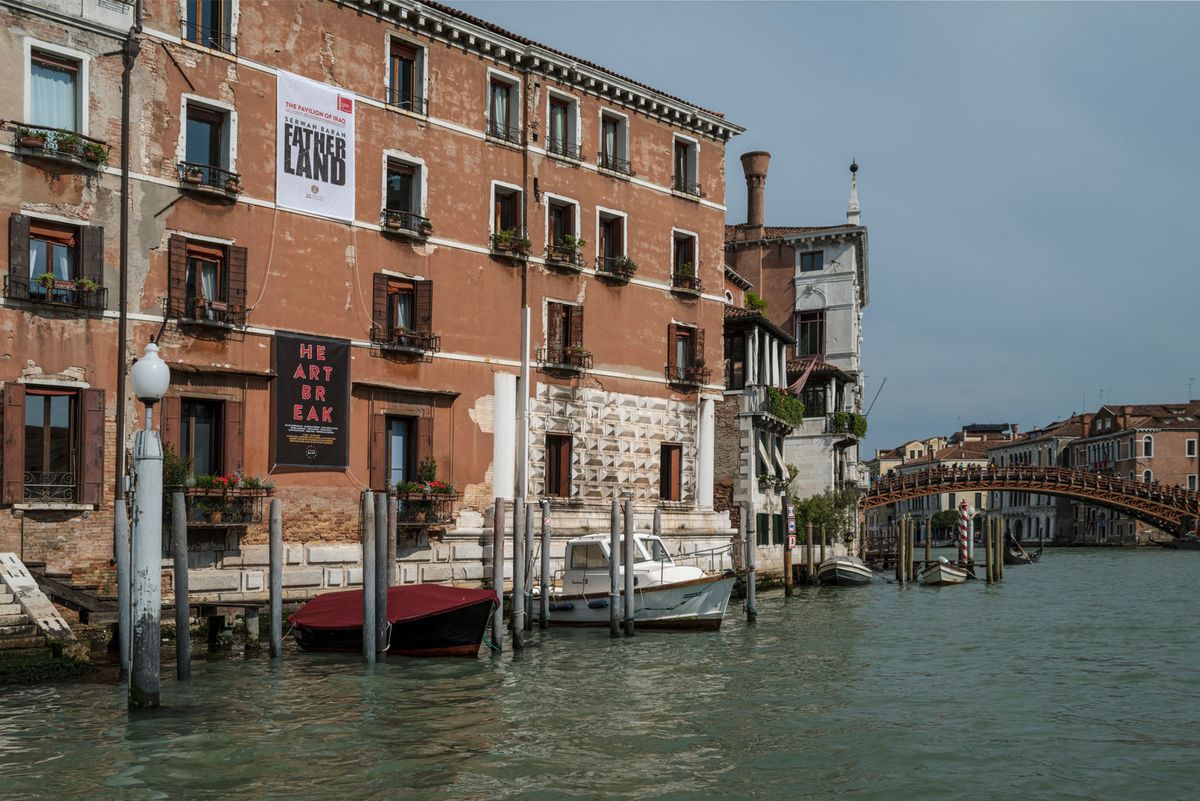Iraq’s national pavilion at the Venice Biennale has been closed “in solidarity with the popular youth uprisings that have erupted in Iraq against state corruption and deteriorating economic and living conditions”, according to the Baghdad-based Ruya Foundation.
The non-profit, non-governmental organisation, which has supported and commissioned the Iraqi pavilion since it first had a presence in Venice in 2013, is calling for cultural institutions across Iraq to go on strike.
“We condemn the use of violence against peaceful protesting, and the bloodshed that has lead to the death of over 265 protestors so far. Peaceful protesting is a basic right, enshrined in Article 38.c of the Iraqi Constitution,” the commissioners say.
“We have decided to close the Fatherland exhibition during this period in solidarity. The Ruya Shop in Baghdad will also be closed.”
Fatherland, which shut on 5 November but was due to run until 24 November, features large-scale expressionist paintings by the Iraqi-Kurdish artist Serwan Baran that incorporate objects from Iraqi military uniforms given to the artist by the families of dead soldiers. The uniforms were collected from the Iran-Iraq War, the second Gulf War and the war with ISIS.
Born in 1968, Baran has endured 40 years of war in his home country. According to the Venice Biennale website: “During his time as a soldier and a war artist, Baran was forced to record the ‘glory’ of the Iraqi army and painted the conflict’s casualties for government propaganda purposes.” His Venice exhibition is an interrogation of the notion of a patriarchal “fatherland”.

Fatherland includes large-scale expressionist paintings by the Iraqi-Kurdish artist Serwan Baran © Photography Boris Kirpotin, courtesy Serwan Baran and Ruya Foundation
Baran confirms the pavilion has been closed “in solidarity with the demonstrators demanding rights”. He adds: “I say loudly, the people will prevail as long as we are with them.”
Anti-government demonstrations began in Baghdad and southern cities on 1 October, with hundreds of thousands of Iraqis taking to the streets demanding an end to corruption, more jobs and better public services. Clashes have intensified in recent days and more than a dozen people are reported to have been killed. Some media reports put the total death toll at more than 319.
The Ruya Foundation says the uprisings are “emblematic” of the youth and “resulting from socio-economic conflict and a need for real change, for greater civil rights against ruling elites that has reached a saturation point in Iraq”. The foundation’s organisers note how the demonstrations are also part of “a larger trend taking place in the region today, in Algeria, Lebanon, Syria and the Sudan and the wider world in Chile, Ecuador and Hong Kong”.
The Ruya Foundation says it “shares this local, regional and global yearning to dream, to aspire, to think, to fight for and embrace new visions of a future that is inclusive of all, especially the younger generations that are the vanguard of this change”.

Serwan Baran was a soldier and a war artist in Iraq © Photography Boris Kirpotin, courtesy Serwan Baran and Ruya Foundation


